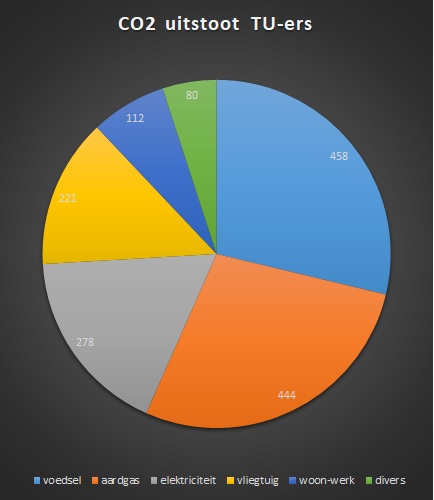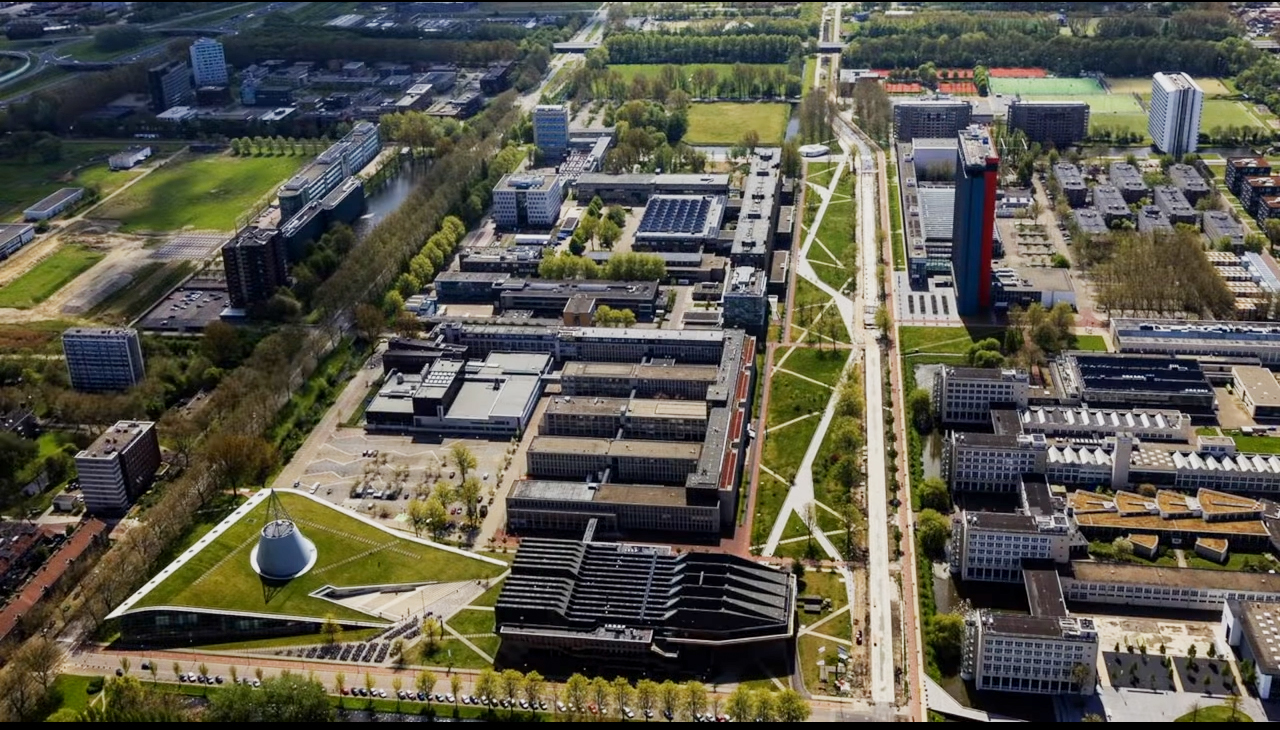A campus without CO2-emissions by 2030 is the objective of Campus Real Estate (CRE). The recommendations prepared by Andy van den Dobbelsteen will be presented on 15 October.
Last spring, TU Delft published a climate declaration and launched a climate action website. It was an initiative of the TU professors Paulien Herder, Andy van de Dobbelsteen and Herman Russchenberg. They are now taking the next step by organising a symposium about the CO2-footprint of the campus, and how it can be controlled. They want to discuss how TU Delft can initiate climate action at the local, national and international level.
Campus
At the local level, the property manager CRE has the ambitious goal to make the campus climate-neutral by 2030. But what is the current situation, and what are the possibilities? Prof. Andy van den Dobbelsteen (BK) and Ms. Tess Blom wrote the helpful report CO2-roadmap TU Delft. They explore more than just the buildings because the behaviour of the staff and students influences the CO2-emissions. It also covers the CO2-equivalents of greenhouse gasses, such as water vapour and methane, which are proportionally incorporated.
So what is the current status? TU Delft produces annual emissions of 47,957 ton CO2-eq with 5,421 fte staff and 24,703 students. That is equivalent to 1.6 ton CO2-eq per student or staff member. Is that a lot? Not really, it is about 11-12% of what the average Dutch person generates per year.
 What causes most green house gas? (Illustration: Jos Wassink)
What causes most green house gas? (Illustration: Jos Wassink)The origin of the work-related emissions is surprising. The largest item (458 kg CO2-eq/fte) comes from the food consumed during working hours. In particular, the meat and animal products on offer in the canteen adds considerably to the total. The second item (444 kg CO2-eq/fte) is natural gas for heating the buildings. Electricity use comes in third place with 278 kg CO2-eq/fte, followed by business flights (221 kg CO2-eq/fte) and commuting (112 kg CO2-eq/fte). And then there is an ‘other’ item for the production of waste and use of water.
Recommendations
Based on this inventory, the authors produced the following recommendations for their client CRE campus management:
- Get rid of the old buildings around the Botanical Garden, ‘Gele scheikunde’ complex and the Kramers’ Lab
- Thorough renovation of Applied Sciences, Civil Engineering, 3mE and EWI
- Push forwardith geothermal project (boring planned for end of 2020)
And Van den Dobbelsteen and Blom advise the Executive Board to:
- Strengthen the relationship with the town and make geothermal heat available for residential neighbourhoods
- Reduce automobile use with NS business cards and e-bikes
- Price canteens differently: healthy food must be cheaper and climate-burdening ones more expensive.
The authors envisage responsible behaviour (especially towards the climate) as an honour code for all students and staff. They conclude their report with a boxed suggestion: ‘Working and studying here means that you endorse the mission of TU Delft, including the sustainability aspects. This extends not only to what you study, teach, research and support, it includes behaviour on the campus and outside it.’ That sounds pretty binding.
Do you have a question or comment about this article?
j.w.wassink@tudelft.nl


Comments are closed.